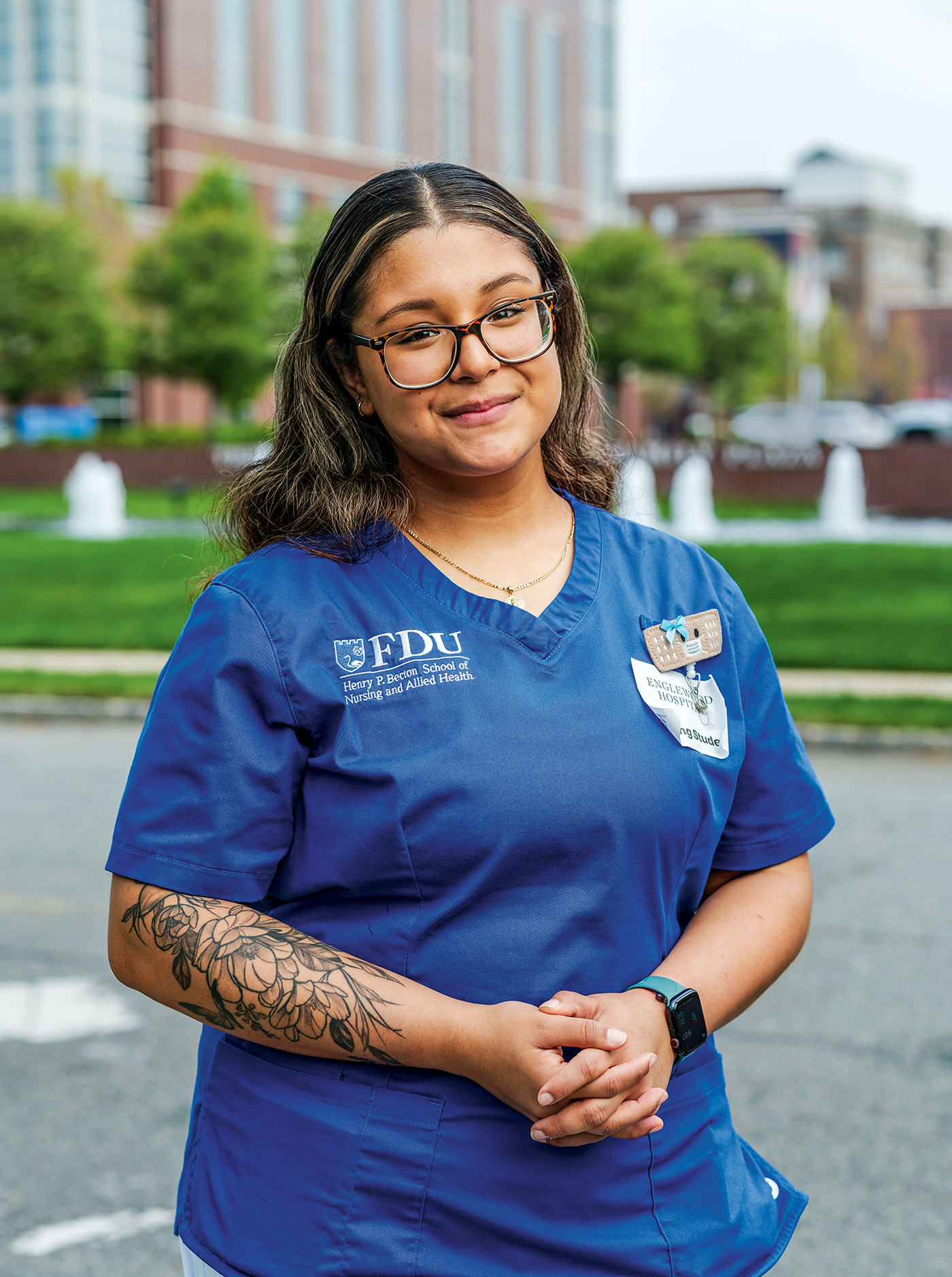Alicia Flechas

(Photo: Karsten Moran)
By Kenna Caprio
To earn her degree, Alicia Flechas, a senior nursing major at the Metropolitan Campus, will have to complete many clinical hours.
“At clinical, nursing students take vitals and assist the nurse they are shadowing. In some facilities, student nurses are allowed to perform basic procedures including wound care, head-to-toe assessments and some urinary catheterizations,” Flechas says. “Clinical informs your future practice as a nurse. We’re implementing what we’ve learned in class.”
Students do rotations in disciplines including comprehensive health, psychiatric and mental health, medical surgical, obstetrics, pediatrics and community health.
Flechas recently completed her pediatric rotation at Children’s Specialized Hospital in Mountainside, N.J., and her obstetrics rotation at Englewood Hospital in Englewood, N.J.
“We also provide comfort to patients through therapeutic communication,” a technique that prioritizes clear, effective communication and patient well-being, says Flechas.
Student nurses also observe nurses as they chart. “Everything has to be documented,” Flechas adds.
At the end of each day, nursing students give a brief report, a rundown of one patient and their condition, to the rest of the class.
“The patient synopsis includes information like a diagnosis, length of admission, reason for admission, medications being administered, updates and general recommendations.”
Clinical, she says, reinforces skills and builds confidence in student nurses.
“For example, bandaging a wound sounds easy. But there are different types of bandages for different types of wounds. You also need to know if the patient is allergic to ointments or antibiotics. And as you give care, you need to be able to address the patient and provide them with comfort,” says Flechas.
Growing up, Flechas watched health care workers in various roles support and comfort her grandparents.
“My grandma has a very rare autoimmune disorder, scleroderma. My grandfather had diabetes and ultimately passed away from complications of the disease.”
Nurses, physical therapists, practitioners and other caretakers put smiles on her grandparents’ faces. “I want to change someone’s life like these health care workers did for my grandparents,” she says.
“Clinical makes you more empathetic, more aware and more knowledgeable.”